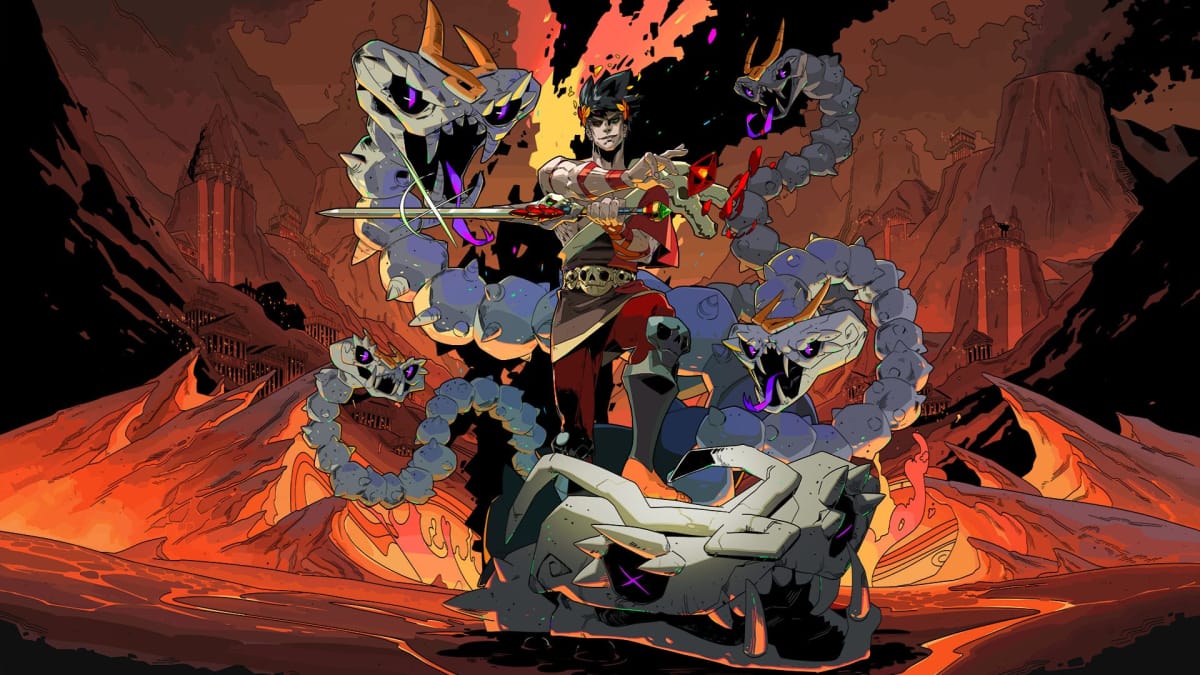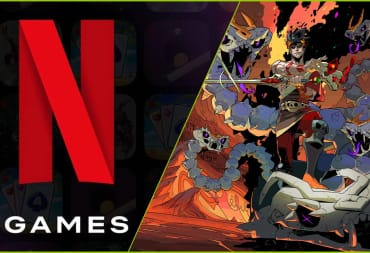When it comes to indie games in 2020, Hades very clearly stands out as one of the best. It’s got style and lovable characters, and the core gameplay loop is as addicting as caffeine. Even if roguelikes aren’t in your wheelhouse, Supergiant Games created a truly special experience that might change your tune. The exquisite combat feels polished to a sheen, and it’s only heightened by a killer soundtrack that truly reflects the game’s roguelike tenets.
The Best Game Music of 2020 is a weekly feature that highlights some of the best soundtracks of the year.
Roguelikes are, by their nature, built upon randomness. Your character goes through a journey, often through unpredictable, procedurally generated levels. They pick up totally random bonuses or items that may or may not help them. When they die, it all starts over again, with the joy of discovering new powerups carrying you through.
All of this action is underscored by some banging tunes composed by Darren Korb, which combines elements of ancient-Greek-sounding instrumentation (think lyres and flutes) with modern metal. There’s even a little bit of prog thrown in for good measure. But it goes beyond simply having good music. The way these songs are implemented elevate this music beyond the sum of its parts.

Music With a Roguelike Identity
When I started digging into the Hades Original Soundtrack on Spotify, I recognized a lot of this music, but it was hard to place most of them in a specific moment. It’s in stark contrast to something like the Final Fantasy VII: Remake soundtrack, which had a musical identity attached to many major moments, particularly the boss fights.
Now, some of the tracks fit in certain places in Hades. “Final Expense” accompanies every shop room with Charon, while “Good Riddance” plays when you enter Eurydice’s room in Asphodel. The powerful duet ballad “In the Blood” plays over the credits after beating Hades (the game), while “On the Coast” kicks in when you’re on the coast after beating Hades (the boss).
Those songs are all fantastic, but they don’t account for the bulk of the soundtrack—or the bulk of your memories with the game, most likely. Instead, you’ll probably recognize songs like “Out of Tartarus” or “The Painful Way.” Why? Because they, among a few others, play on rotation while you’re slaying the dregs of the underworld.
Statistically, most people probably spend the most time in Tartarus than any other level, since it’s always at the start. But you’ll notice that there isn’t a “Tartarus Theme;” instead, it’s more like a Tartarus Suite. “The House of Hades,” “Out of Tartarus,” “The Painful Way,” and “Scourge of the Furies” make up this “suite.”
As you progress through the chambers of Tartarus, the game will pick a different song at random to play. It’s a neat little touch that adds to the roguelike feeling. The fiery pits of Asphodel include tracks like “Through Asphodel,” “Field of Souls,” and “River of Flame.” Likewise, the fields of Elysium rotate through tracks like “Rage of the Myrmidons,” “The Exalted,” and “The King and the Bull.”
You won’t always know what song to expect, and luckily, there’s never really a wrong answer because all of the music is just that good. Hades, however, takes things one step further by giving most of these songs two forms.

When the Distortion Hits
Not only does each level have multiple songs attached to them, but most of these songs have two stages to them. Take “Out of Tartarus” as an example. It starts off fairly light, with the guitars on a clean tone as it plays a go-hard tune in a funky time signature. Then around the three-minute mark, the distortion—and the adrenaline—kicks in.
You’ll recognize it’s the same melody, but it’s presented through a more metal lens. It’s heavy and gets the blood flowing, and you can’t help but headbang to it. As another example, “The King and the Bull” has its turn nearly four minutes into the song, and it transforms into something that sounds like a Megadeth song.
Then you enter a chamber with a miniboss or a full-blown boss, and the distortion hits.
Having hard rock and metal in an action game is nothing new, of course. Look at Doom or Devil May Cry (“Bury the Light,” anyone?). The high BPM, heavy guitars, and pumping drum work feel cool and epic, perfectly fitting into what an action game is all about. However, in Hades, it’s the juxtaposition of the easy listening and heavy action that really delivers on the mood.
The chill versions of these songs play while you’re beating on no-name scrubs, like in the first few chambers of every level. These enemies pose a small threat, and after a few runs, you can run circles around them like they’re nothing. At this point, it’s easy mode. The more laid-back vibe fits perfectly, subtly lulling you into a sense of security.
Then you enter a chamber with a miniboss or a full-blown boss, and the distortion hits. You know it’s about to get real, and the challenge ramps up. You’ve got to focus to survive, and the shift to metal matches that shift in mental state just right.

The Endless Cycle, Symbolized in Sound
There’s so much that the Hades soundtrack gets right, but a lot of it is personified best in the relationship between two songs: “No Escape” and “God of the Dead.”
“No Escape” is the first song you’ll hear, right off the bat. It kicks in when you boot up Hades and hit the main menu. The lyre-like strings are relatively clean, but then a very low-tone distorted guitar comes in hard underneath. It’s a broody feeling, which likely fits into your initial perception of Zagreus. He’s an edgy kid who wants to run away from his ultra-strict dad.
Then, when you finally get to the end of a run, you’ll have to fight Hades himself. This boss fight is when “God of the Dead” kicks on, and what a moment that is. The first few measures will sound very familiar, like it’s lifted straight off “No Escape.” However, when the guitars kick in this time, the distortion gets cranked up to 11. It’s chunky and dark, like it’s the heavy version of the very first song that kicked off your journey.
Consider Hades’ musical language so far: When the heavy version of a stage’s song plays, you know you’re about to fight a tough boss. “God of the Dead,” though, is the heavy version of the entire game’s song. You’re fighting the biggest, baddest boss there is.
It’s also a wonderful commentary on the story itself. Zagreus’ journey starts because he desperately wants to escape home, in part to get away from his father. The final obstacle in his quest is none other than Hades himself, who’s now willing to throw down. Zag’s journey ends where it must begin: with his father.
On top of that, it’s a sort of meta commentary on the cyclical nature of roguelikes themselves. The end of every run is the beginning of a new one, after all. From a musical perspective, the fact that each run ends in the same place the game begins feels oddly poetic. Was that intended by Korb and the rest of the Supergiant Games team? Or am I reading into it too much? Maybe the latter. But it’s still pretty cool.
Oh, and on top of all that, “God of the Dead” doubles down HARD in its second phase. Around the 3:40 mark is the moment when the second round of the Hades boss fight starts. We trade out the chunky, brooding vibe for some straight-up thrash metal, but it takes moments to let the original melody from “No Escape” come up for air.
It’s a frantic fever dream. Hell, it’s almost a nightmare, which is fitting, considering how formidable Hades’ second phase is. “God of the Dead” starts racing toward the end, because it knows you’re so close to finishing a run. The question is whether you’ll be the one standing at the end of it all.

All in all, Hades is easily one of the finest games to launch in 2020, and its soundtrack plays a crucial role in its identity. It’s relaxed and playful during the easy moments, but it knows when to go hard when it needs to. It ratchets up the tension and delivers an adrenaline boost that swings you from laid-back to laser-focused. The soundtrack isn’t just full of addicting songs; it’s the way Supergiant uses these songs that makes its musical language so memorable.
This feature is part of our limited-run series on some of the best soundtracks of 2020. Tune in next week for another installment!
Have a tip, or want to point out something we missed? Leave a Comment or e-mail us at tips@techraptor.net












